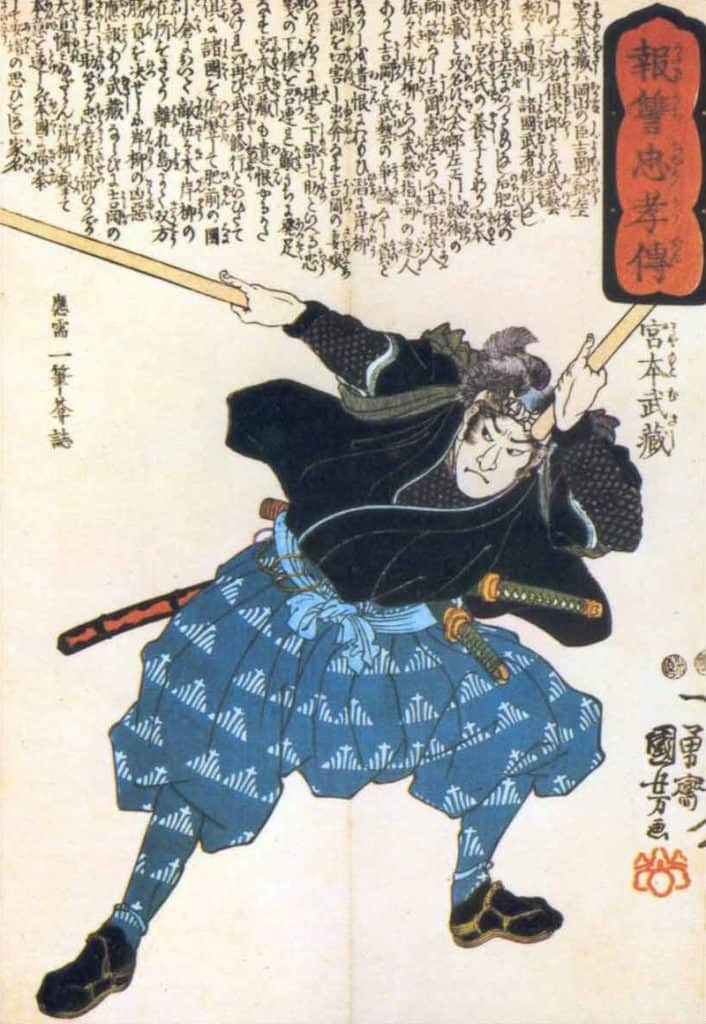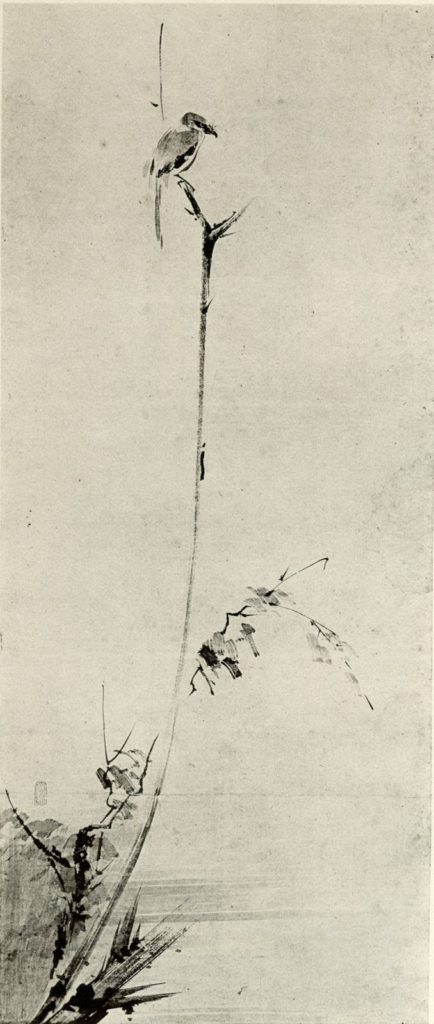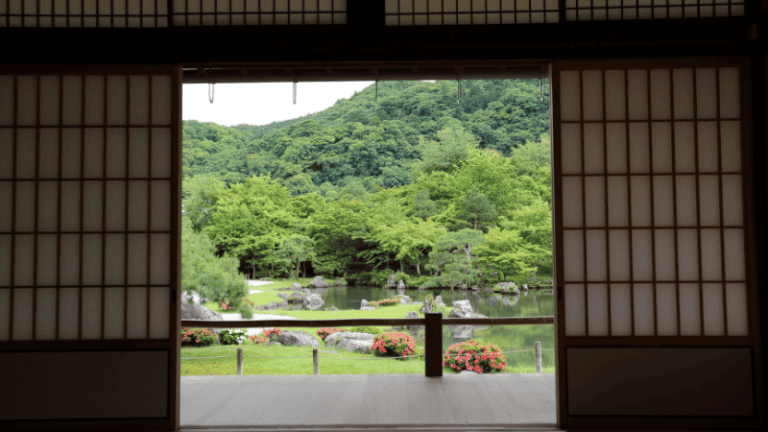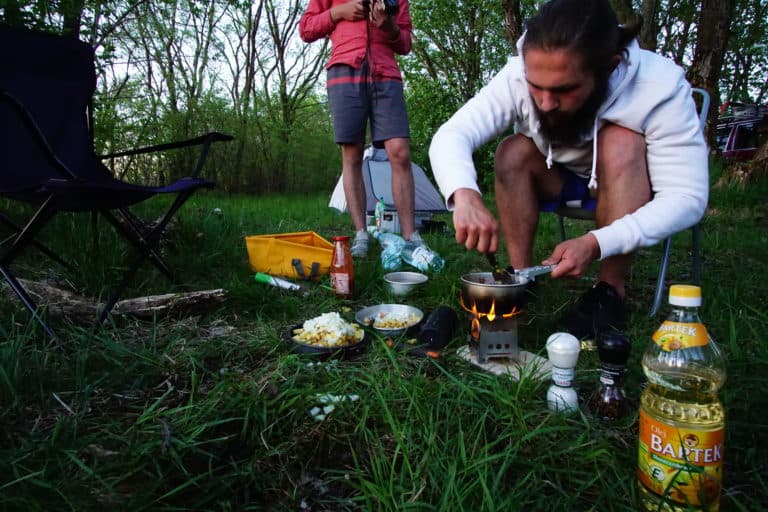Miyamoto Musashi and life without preferences
Miyamoto Musashi, the sword master and founder of the school "of the two heavens" (jap. 二天一流, Niten Ichiryū), stated in his writings in various places that it is crucial not to have preferences. This is the only way to succeed in battle.

An example of this is the following quote from the Gorin-No-Sho (The Book of Five Rings):
"In all things, I have no preferences."
- Miyamoto Musashi
Musashi explains that none of the common types of combat were to be rejected. This included not only fighting with the long and short sword and their different stances, but also other types of weapons, such as staff, spear, bow and even the newly emerging musket.
What was an important model for the samurai living in the 16th and 17th centuries, which brought him success in battle and made him a legend, he extended to other areas only in the later course of his life (1584-1645). For example, he was also engaged in philosophy, poetry and also drawing, calligraphy and crafts.

Since you're probably not a traditional samurai (but who knows), we'll now look at how you can use this quote in your life.
Application in the present time
The point where I first consciously managed to have no preferences was with the weather, or rather with seasons. This may sound banal, but in fact many people have a strong preference for certain seasons - and accordingly often a negative attitude towards others.
Maybe you know people who don't like winter, or maybe you don't like it yourself. But since this time of year is unavoidable, it puts you in a position where you always feel a certain amount of negativity, and you feel it for a long period of time. Year after year.
There are basically two ways you can prevent this from happening:
- Move to a region where the season is not very pronounced
- Change your inner attitude towards the season
I do not want to say that the first option is completely absurd, but it is chosen in the rarest cases.
Strictly speaking, however, neither does the second. Mostly it remains with the previously described dissatisfaction - although it can be a valuable lesson to learn to appreciate all seasons equally (a lesson that can be transferred to all sorts of other areas). Not to mention that it increases inner satisfaction enormously.
Another good example is rain. It has a bad reputation and regularly spoils the mood of a large part of the population.
This is not particularly ideal, as we have no control over the weather or the seasons, and thus give up the rudder for our mood and subject ourselves to the roulette of external influences.
In psychology, one would say one is determined by extrinsic factors.
However, if one manages to view every season or every weather condition as equally valuable, this problem can be eliminated.
So for the seasons, I've been looking for beautiful features for each season and weather condition and recommend you do the same.

This could look like this, for example:
- Spring: look forward to the mild climate and the awakening of nature (more chirping due to the return of many species of birds after winter, the blooming of flowers, etc.), instead of being annoyed by the often still fickle weather.
- Summer: enjoy beautiful long summer evenings, the possibility for many outdoor activities and pleasant bathing temperatures, instead of complaining about the scorching midday heat (which, by the way, you can escape quite well with a book under a tree).
- FallLet the colorful spectacle and the rustling of the leaves have an effect on you and don't be bothered by the frequent fog, but take it as an opportunity to make yourself comfortable.
- WinterEnjoy the snow as long as it is freshly fallen and do not stiffen up on the slushy mush that lies on the roadside. Enjoy also that the world is a little more quiet and you can enjoy the bitter cold with a hot drink especially.
These are just a few examples, but they might give you some impetus to find more points.
You see, by eliminating a preference for one particular thing, suddenly everything has its appeal. Instead of enjoying only one quarter of the whole, you can now enjoy all four parts.
You can apply this exercise to all areas:
You have a repetitive task that you have to do regularly at work? Maybe this is exactly the time at work when you can listen to a podcast because you don't have to concentrate too hard, or maybe this is where you can just daydream a bit and recharge your inner battery instead of getting annoyed that this task is annoying.
You have to talk to difficult customers on a regular basis and you don't feel like it? Maybe try to make a game out of it, where you can improve your communication skills and don't let the customers' grumblings drag you down. And you might be able to replenish the energy you've spent doing one of the boring tasks described earlier.
I can tell you from personal experience that this quote has the possibility to influence your everyday life in an extremely positive way, but...
Limitations of this quote
Nevertheless, we should not forget that this quote should not be blindly applied to everything.
When you have found your absolute vocation, you should concentrate on dedicating yourself fully to it and not pursue other occupations (e.g. just because they are better paid).
Moreover, even Miyamoto Musashi has had preferences in certain things. For example, he devoted most of his life to the pursuit of perfection in swordplay. He knew it would be illusory to think he could devote himself equally to all areas.
If you are interested in how to find your personal and ideal intersection of what you like to do, what the world needs, what you are good at, and what makes you money you can read my Articles about Ikigai read. Ikigai is the term for the balance between these areas and leads to strong inner satisfaction.
If you are interested in other quotes by Miyamoto Musashi, you will find a selection here:
- "Fixation is the way to death. Fluidity is the way to life."
- "Learn to look at the situation you're in as a whole."
- "Accept everything as it is."
- "There is nothing outside of you that can make you stronger, richer, faster or smarter. Everything is within you. Everything exists. Seek nothing outside of yourself."
- "You can only fight the way you practice."
Did you like this article? You can let us inform you about new articles:








